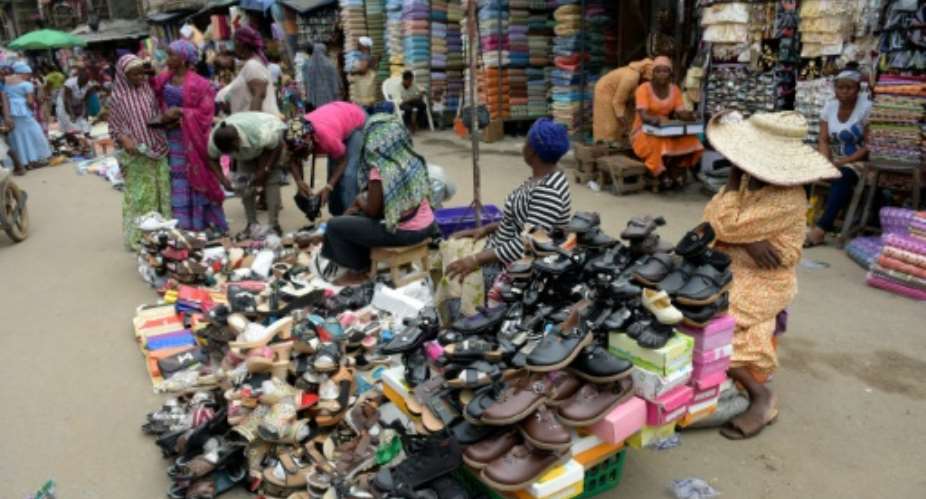Abuja (AFP) - Replacing a single printer ink cartridge of the same make in different Nigerian government departments can cost $79 or $308; flights to the same destination can vary by as much as 100 percent.
Even the price of simple office stationery such as paper can differ as much as 80 percent.
Nigeria's new finance minister wants to know why and on Monday launched the country's first Efficiency Unit as a first step in cutting government waste and helping boost the battered economy.
"No amount of fiscal innovation, financial re-engineering or other well-intentioned economic policy will deliver the desired results for as long as the manner in which government money is expended is not carefully controlled," Kemi Adeosun said at the launch.
"We need to put the fiscal house in order," she said in a speech in which she noted the "wide variations in the prices of basic items" from paper to printer cartridges.
Nigeria -- Africa's number one oil producer and leading economy -- has been hit hard by the global slump in crude prices since mid-2014, robbing the government of much-needed cash.
Adeosun, a former investment banker and PricewaterhouseCoopers accountant who was appointed last month, said the oil shock made it essential the government tightened its belt.
Inefficiency and waste in the public sector had "costly and incrementally damaging effects" on the economy, she said, and there was a need to keep a closer eye on spending.
The Efficiency Unit would be a "critical tool in the management of public expenditure" to ensure "every naira we spend counts", she added.
The scheme comes as part of a wider crackdown on endemic corruption at the highest level launched since President Muhammadu Buhari took office in May.
Buhari has started with a major overhaul of the state-run oil firm, including a comprehensive audit into its opaque accounting practices that he said has seen "mind-boggling" sums go missing.
The Nigerian National Petroleum Corporation (NNPC) was last year accused of failing to remit $20 billion in revenue to the central bank.
The NNPC, under new management since August, has since begun publishing its receipts every month to boost transparency and accountability.
There was a need for "probity in the use of public funds", Adeosun said, to boost government coffers that the new administration has said were left "virtually empty" by the previous government.
In September, Buhari announced a review of Nigeria's foreign missions, indicating some embassies and consulates would close.
Despite its lofty status as Africa's biggest economy, poverty among its 170 million people is widespread and improvements to transport, housing, roads and public services is urgently needed.
Scrutinising ministry outgoings would help make critical savings, said Adeosun.
"We are determined to change the balance between capital and recurrent expenditure to release funds for the investment in infrastructure that we need," she added in a statement.





 Saglemi Housing Project will not be left to rot – Kojo Oppong Nkrumah
Saglemi Housing Project will not be left to rot – Kojo Oppong Nkrumah
 Transport fares hike: GPRTU issue two-day ultimatum
Transport fares hike: GPRTU issue two-day ultimatum
 ARC endorses Alan as presidential candidate – Buaben Asamoa
ARC endorses Alan as presidential candidate – Buaben Asamoa
 Akufo-Addo appoints Kwasi Agyei as new Controller and Accountant-General
Akufo-Addo appoints Kwasi Agyei as new Controller and Accountant-General
 PNC dismiss reports of mass resignations
PNC dismiss reports of mass resignations
 PAC advocates for revenue collectors to be engaged on commission basis, not full...
PAC advocates for revenue collectors to be engaged on commission basis, not full...
 Genser Energy commissions 110km of natural gas pipeline at Anwomaso
Genser Energy commissions 110km of natural gas pipeline at Anwomaso
 Naa Torshie calls for tolerance, peace ahead of 2024 election
Naa Torshie calls for tolerance, peace ahead of 2024 election
 Asantehene commends Matthew Opoku Prempeh for conceiving GENSER Kumasi Pipeline ...
Asantehene commends Matthew Opoku Prempeh for conceiving GENSER Kumasi Pipeline ...
 Let’s do away with ‘slash and burn politics’ in Ghana — Dr Adutwum
Let’s do away with ‘slash and burn politics’ in Ghana — Dr Adutwum
